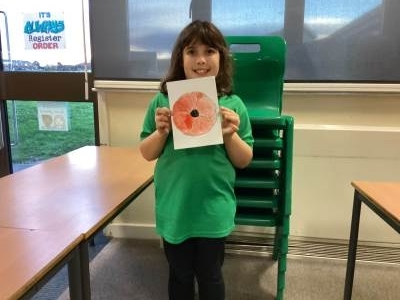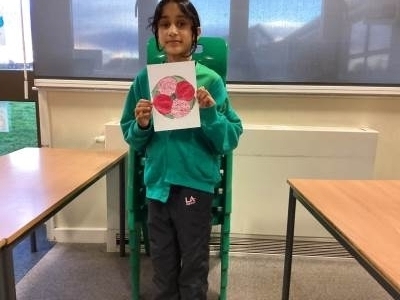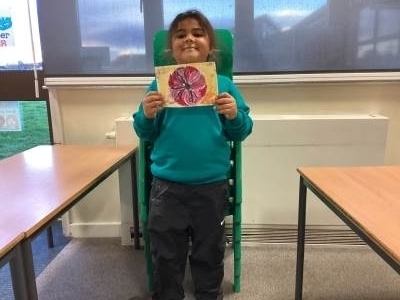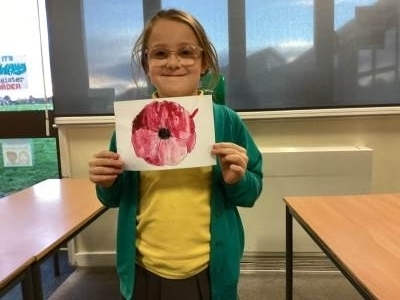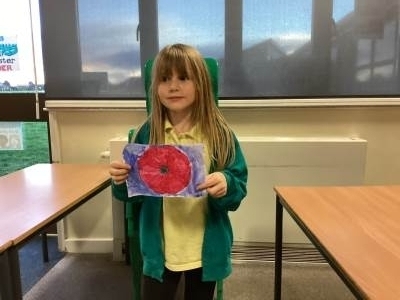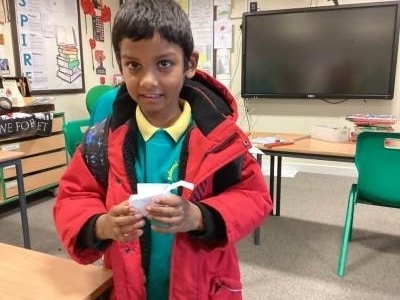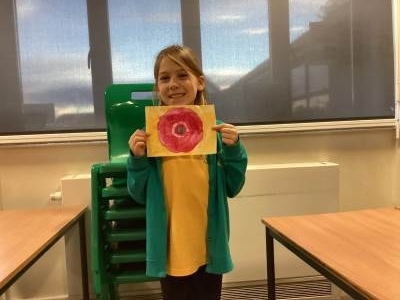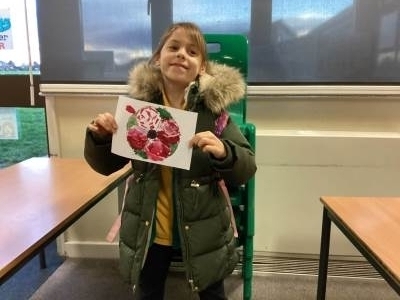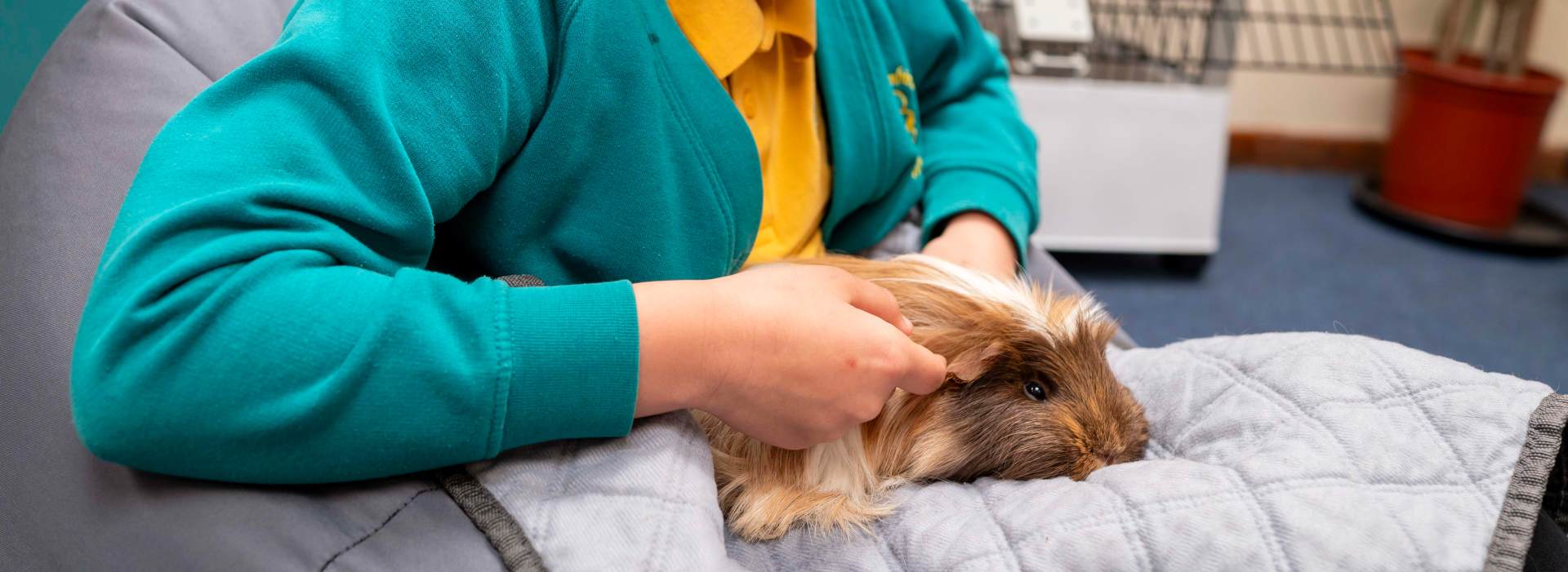
Pastoral Provisions
At Ashmead, we take great pride in the nurturing environment that our pupils experience when they step through our doors. We have a wide variety of Pastoral Provisions across the school, which are all aimed at improving children’s mental health and wellbeing. Due to this, we aim to keep waiting lists to a minimum and provide support in a timely manner.
Lunch Clubs
In Key Stage 2, children have the opportunity to spend time at Lunch Club throughout the week. This club runs as an alternative inside provision and has adults supporting with a variety of activities.
The children take part in lots of fun activities, such as turn taking games, arts and crafts or have the opportunity to complete their own independent activity, such as quiet reading. We understand that the playground can be overwhelming at times, so our Lunch Clubs provide the perfect opportunity for a quieter environment, whilst also developing confidence, self-esteem and social skills.
If you think your child would benefit from joining one of our Lunch Clubs, please speak with your child’s class teacher and they will inform a member of the Pastoral Team if they feel this provision would be suitable.
Morning Mellow
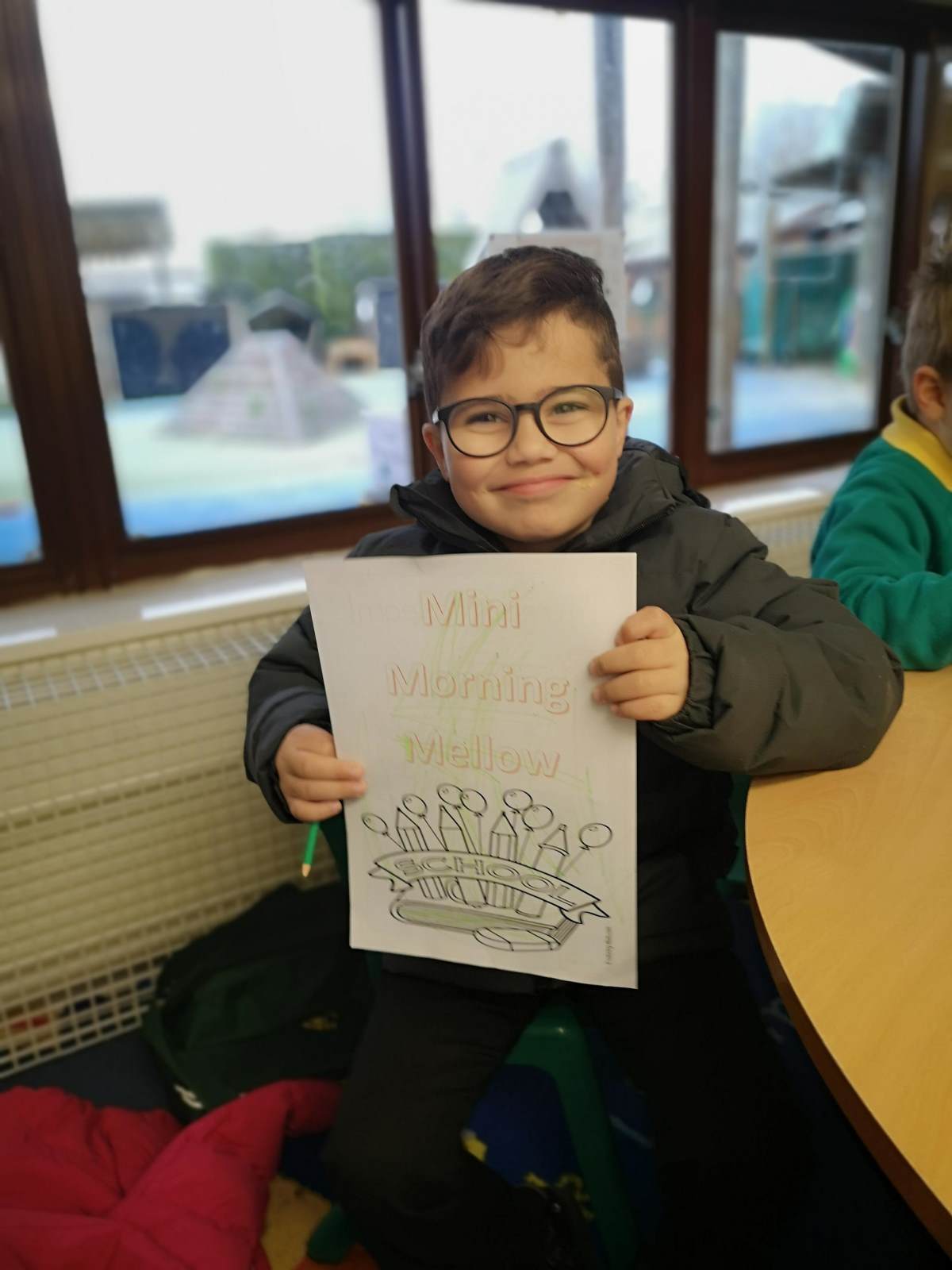 Morning Mellow is a group aimed at developing independence and confidence with the transition into school each morning. This is offered to children across the school, with our younger students attending ‘Mini Morning Mellow’ and our older students ‘Morning Mellow’. It can be a tricky moment when children need to leave their adult in the morning, and this can result in lots of big feelings.
Morning Mellow is a group aimed at developing independence and confidence with the transition into school each morning. This is offered to children across the school, with our younger students attending ‘Mini Morning Mellow’ and our older students ‘Morning Mellow’. It can be a tricky moment when children need to leave their adult in the morning, and this can result in lots of big feelings.
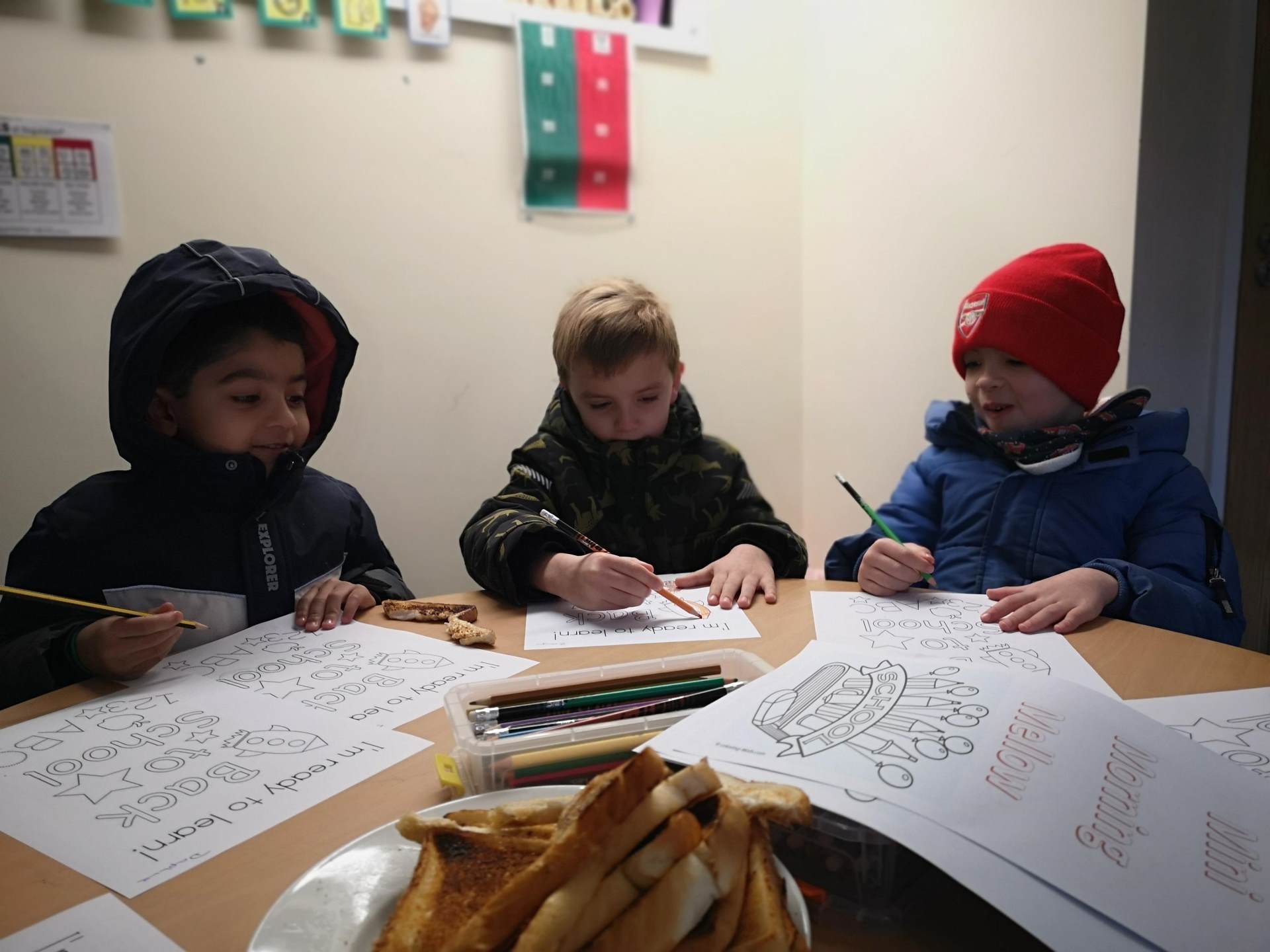
In Morning Mellow the children have their breakfast with an adult, and work through different Mindfulness or Zones of Regulation activities to help prepare them for the day ahead. As time goes on, the frequency of the Morning Mellow sessions decreases, until eventually the children feel confident enough to come into school alongside their peers.
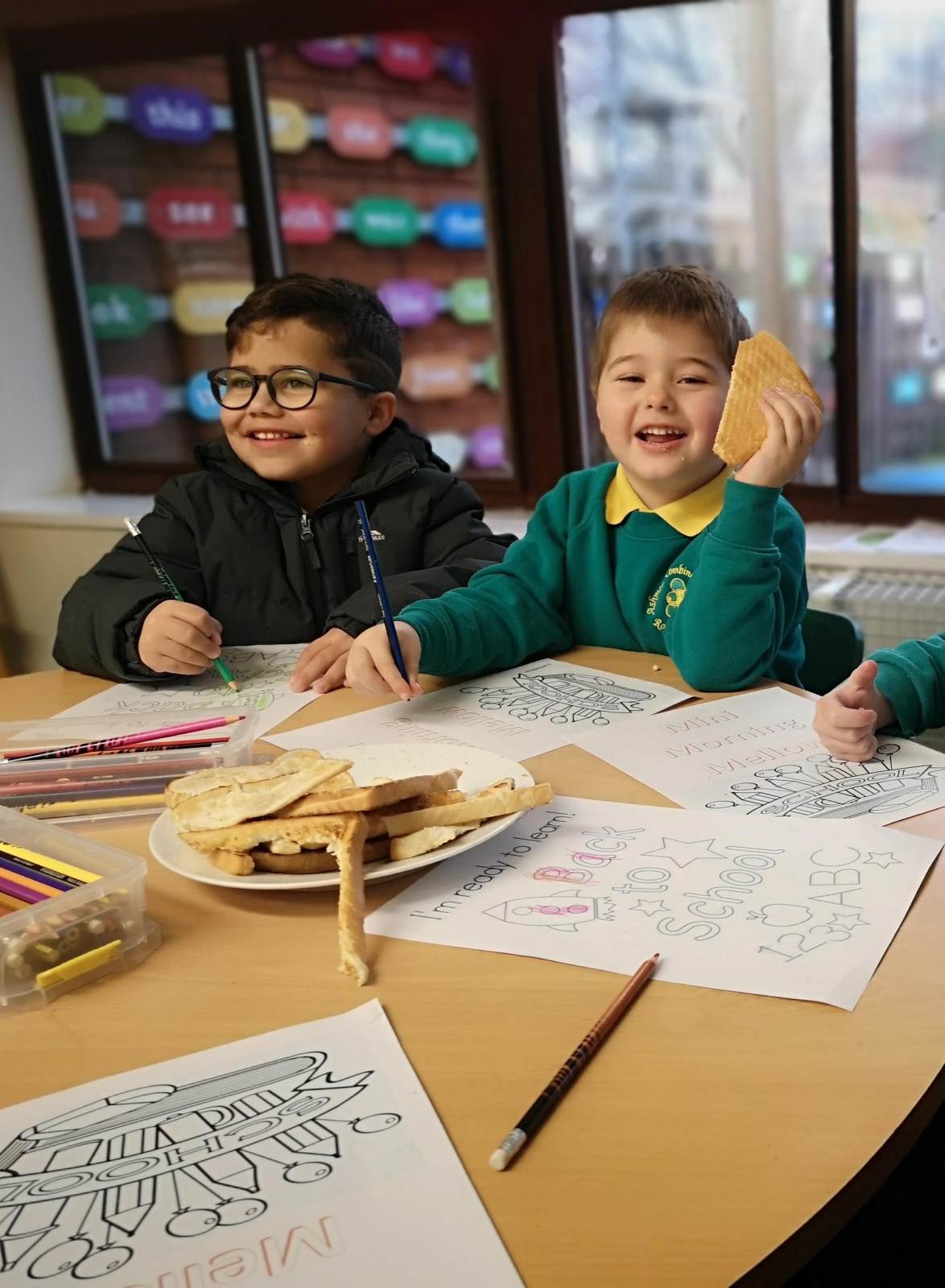
If you think your child would benefit from joining Morning Mellow, please speak with your child’s class teacher and they will inform a member of the Pastoral Team if they feel this provision would be suitable.
Nurture Group
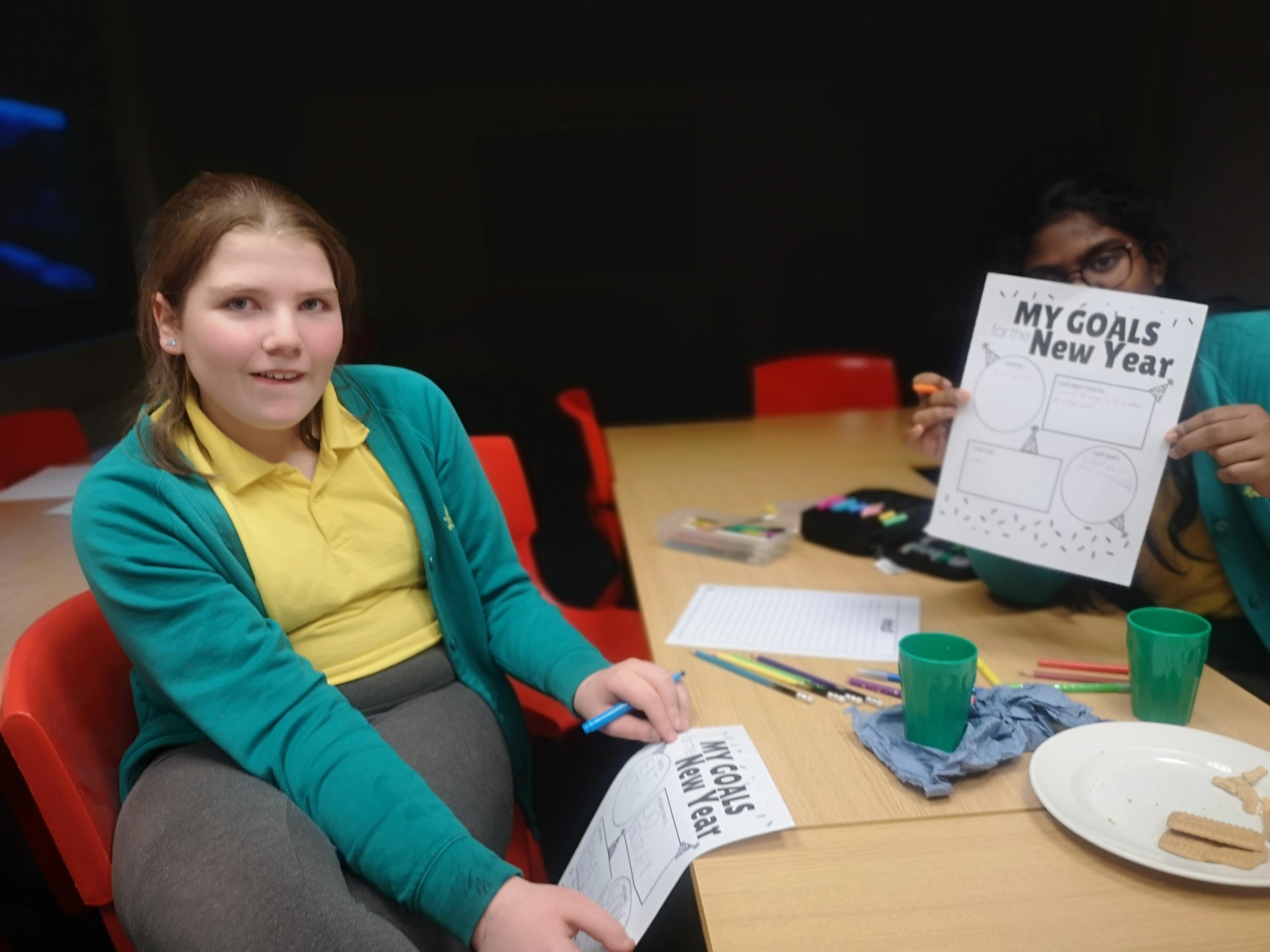 Nurture Group supports children in Year 6 with their social, emotional and mental well-being, particularly through the pressures and changes they will be experiencing, such as 11+, SATs and transition to secondary schools.
Nurture Group supports children in Year 6 with their social, emotional and mental well-being, particularly through the pressures and changes they will be experiencing, such as 11+, SATs and transition to secondary schools.
Nurture is important to develop self-esteem and resilience. In the group we create a safe environment where children have the opportunity to develop communication and understanding through a variety of activities, arts and crafts and group discussions. Nurture practices aim to give children the social and emotional skills that will help them grow.
Children who would benefit from the Year 6 Nurture Group are initially identified by the Year 6 Team, however, if you feel this is a provision that you would like your child to take part in, please contact safeguarding@ashmeadschool.org.uk and Ms Fernandez will contact you.
Ashmead Young Carers Club
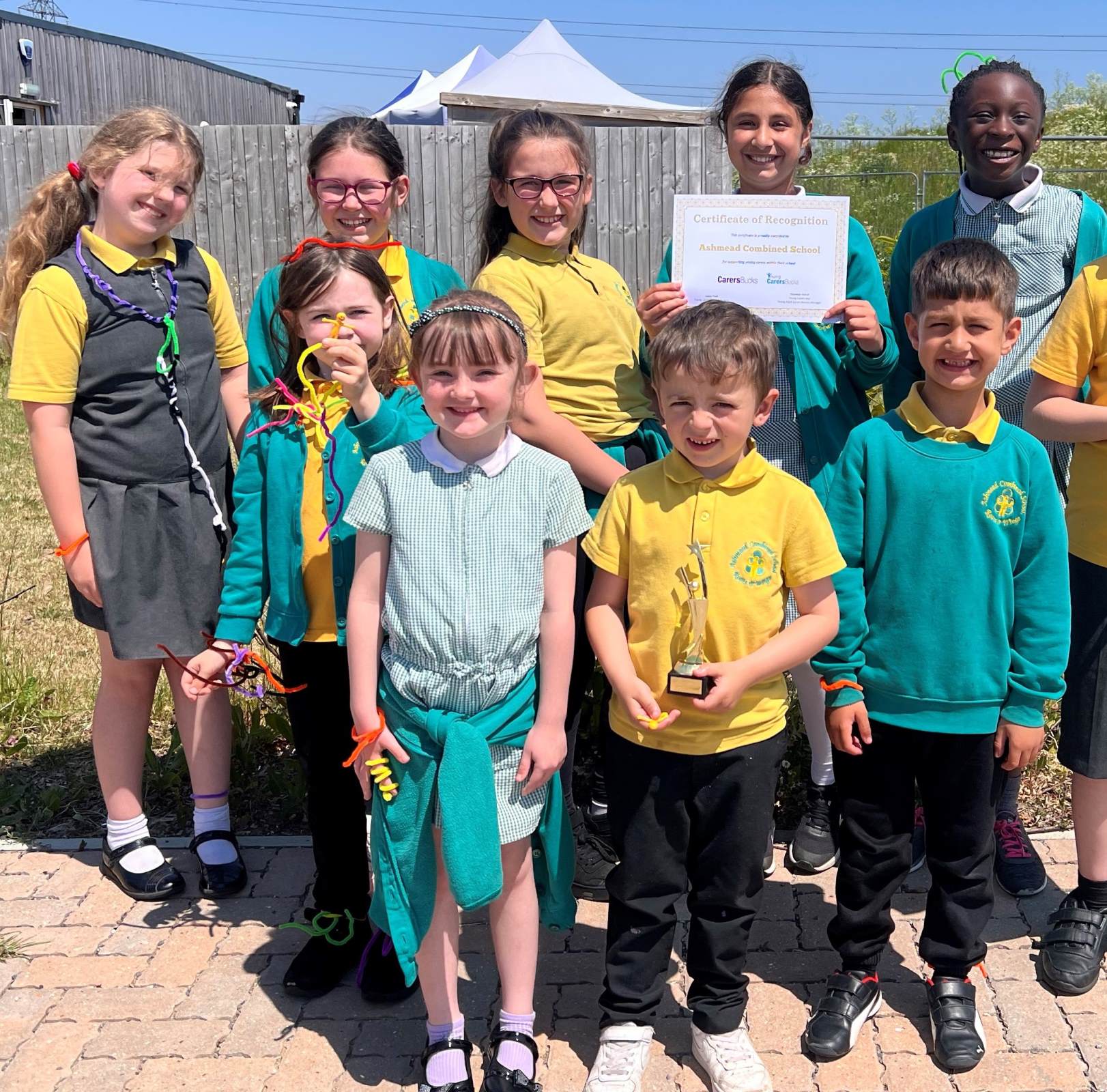 Ashmead Young Carers Club is a warm, safe space for Young Carers from Reception to Year 6. It gives them a chance to have fun and have a break from their caring role. Children have the opportunity to meet others in a similar situation, make new friends and talk to trusted members of staff in a confidential environment.
Ashmead Young Carers Club is a warm, safe space for Young Carers from Reception to Year 6. It gives them a chance to have fun and have a break from their caring role. Children have the opportunity to meet others in a similar situation, make new friends and talk to trusted members of staff in a confidential environment.
Activities such as mindful art, crafts, Lego and fun games are on offer each week, as well as juice, biscuits and the famous 'Rocket Juice' which the children have invented! We understand that the role role of a Young Carer is an invaluable one, and it is therefore imperative that our children feel valued and listened to; all of our sessions are created with this in mind. We have also been awarded the Bucks Young Carers Schools Award for all of the support and opportunities that Ashmead Young Carers are given.
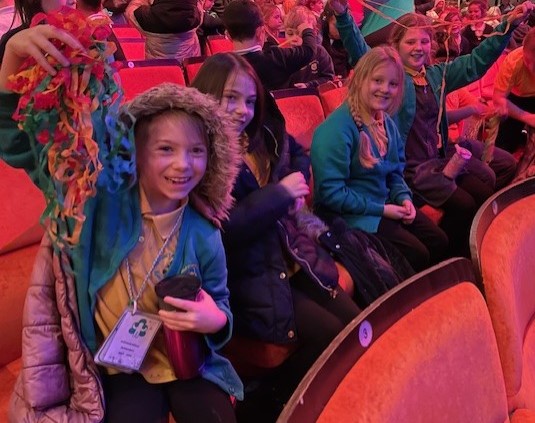 For more information about Young Carers, please follow the Bucks Young Carers link: https://carersbucks.org/information-for-carers/young-carers/ Your child is able to attend Ashmead Young Carers without a Bucks Young Carers referral. We are able to refer your child to Bucks Young Carers for additional support if this is something you feel they would benefit from.
For more information about Young Carers, please follow the Bucks Young Carers link: https://carersbucks.org/information-for-carers/young-carers/ Your child is able to attend Ashmead Young Carers without a Bucks Young Carers referral. We are able to refer your child to Bucks Young Carers for additional support if this is something you feel they would benefit from.
If you feel that your child is a Young Carer, please contact Miss Lubbock using safeguarding@ashmeadschool.org.uk and she will be in contact with you to discuss the options further.
Young_Carers_Identification_Letter
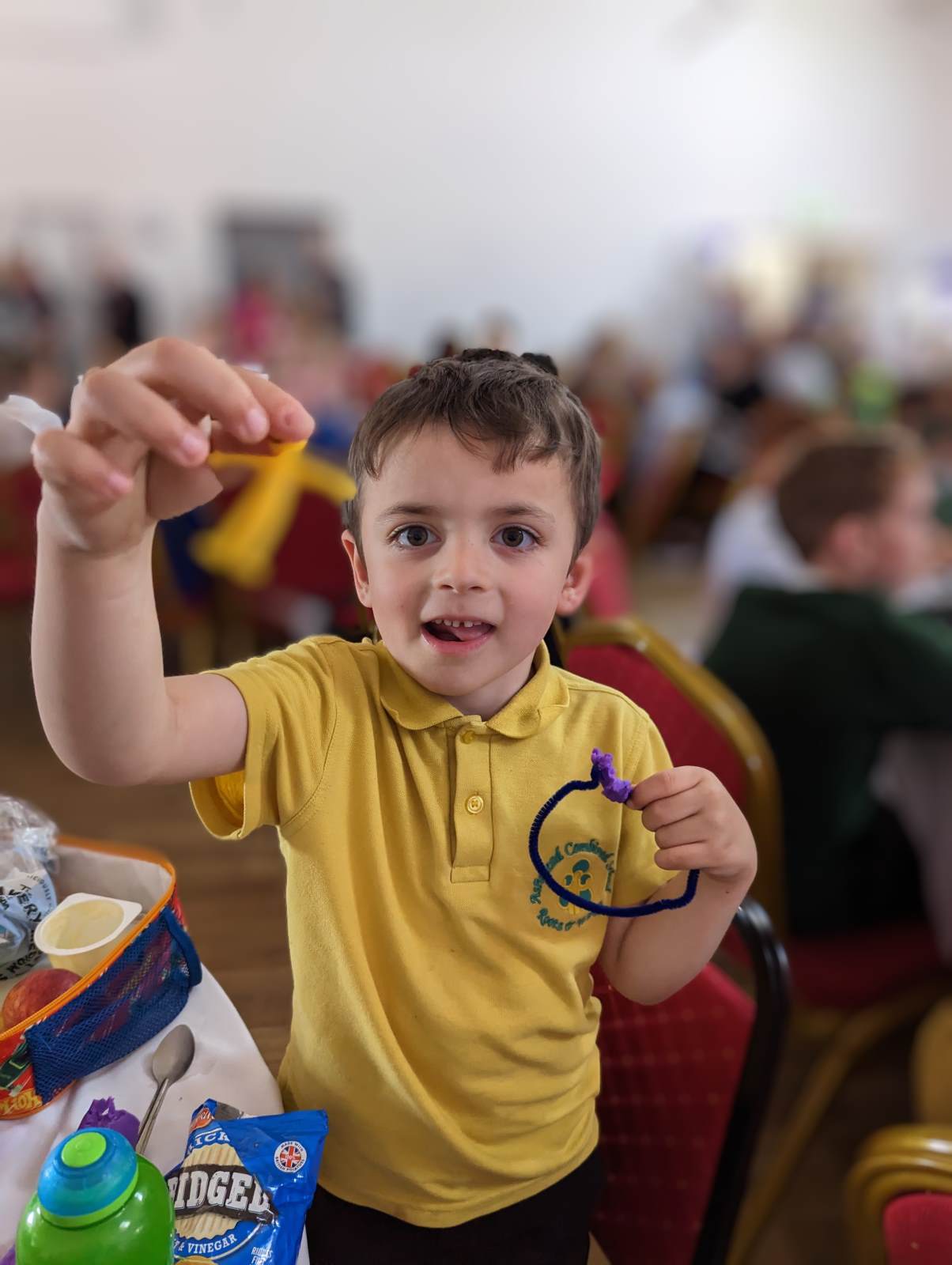
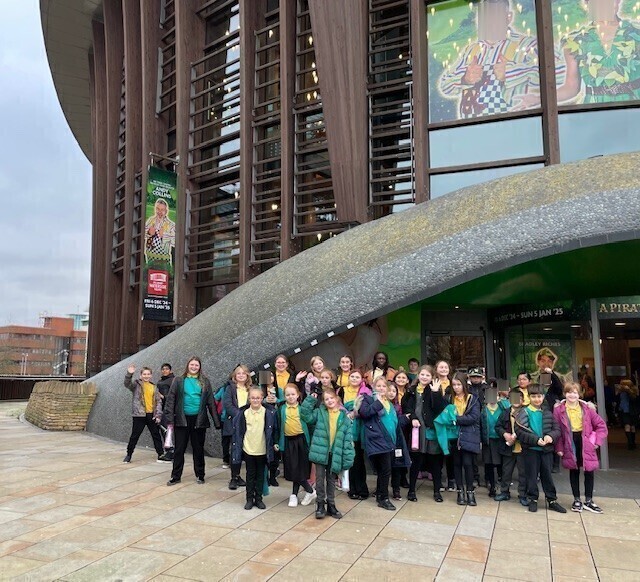
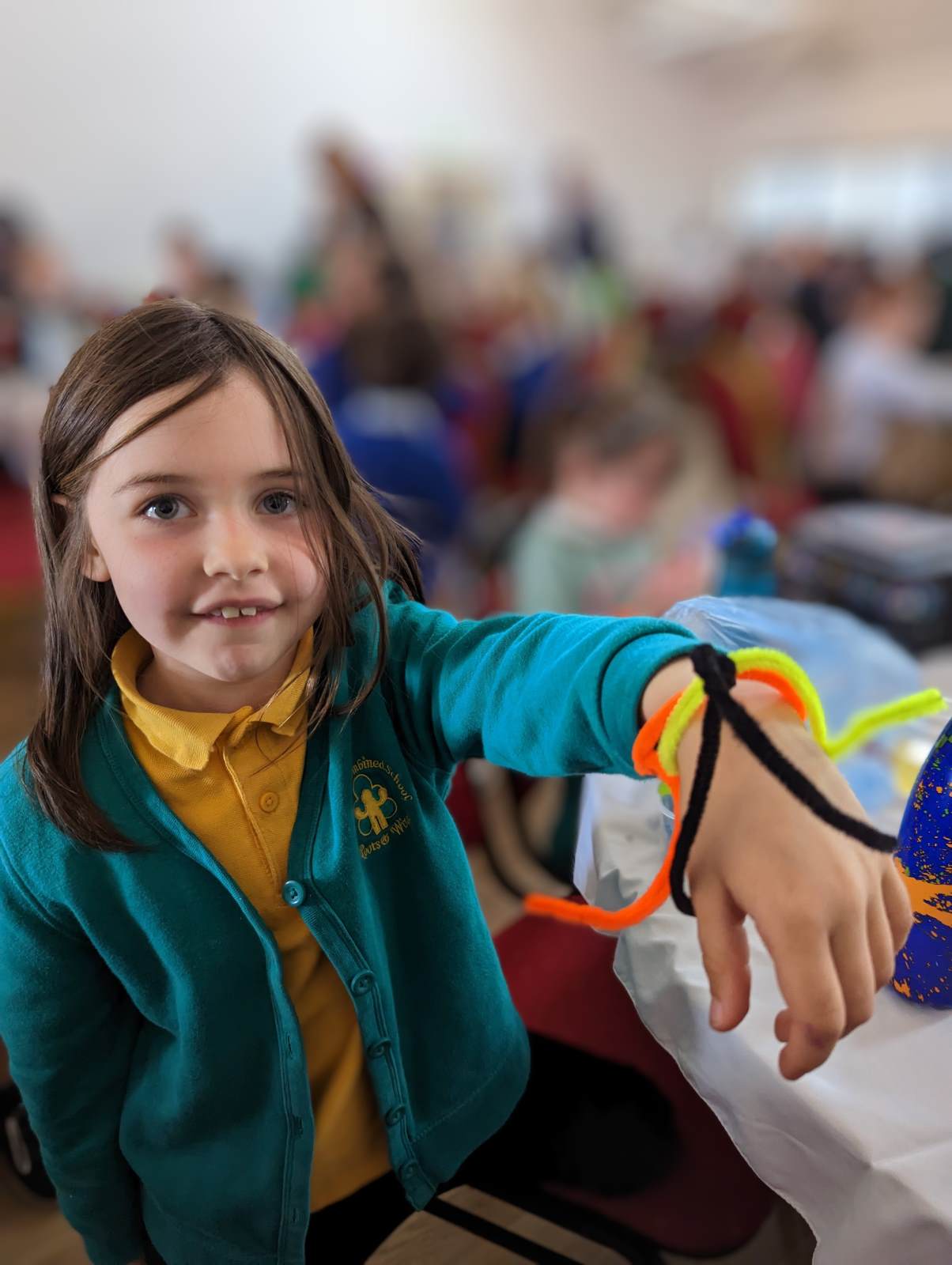
Young Carers Club
Emotional Literacy Support (ELSA)
What is ELSA?
In schools, ELSA stands for Emotional Literacy Support Assistant. An ELSA supports children and young people in schools facing life challenges that distract from their ability to engage with learning. Some children will benefit from extra support to increase their emotional literacy than others. ELSA is an opportunity which has been developed and supported by emotional psychologists, which recognises that children and young people’s education is attained when their emotional needs area also communicated.
ELSA support is accessed either on an individual or small group basis within the school day. Sessions are fun, using a range of activities and interactive support such as: games, stories, tailored interventions, role-play with puppets or crafts. Weekly sessions provide a safe, calm and supported environment and routine can also be beneficial for their emotional needs.
In ELSA we aim to provide support for a wide range of emotional needs:
- Recognising emotions and feelings

- Self-Esteem
- Social/Friendship skills
- Emotional Awareness
- Loss and Bereavement
- Anxiety/Worries
- Anger Management
How does ELSA work?
Staff and parents work together to ensure sessions are planned to support the children in developing new skills and coping strategies that requires them to manage social and emotional demands more effectively. ELSAs support children with their difficulties/concerns, we can’t fix them. Providing emotional support, the aim is to establish a warm, respectful relationships with the children and provide a reflective space where they are comfortable to share their feels and thoughts. Emotional Psychologists work alongside our school having regular supervision sessions with our ELSA to offer appropriate advice and involvement in involved cases.
Furry Friends
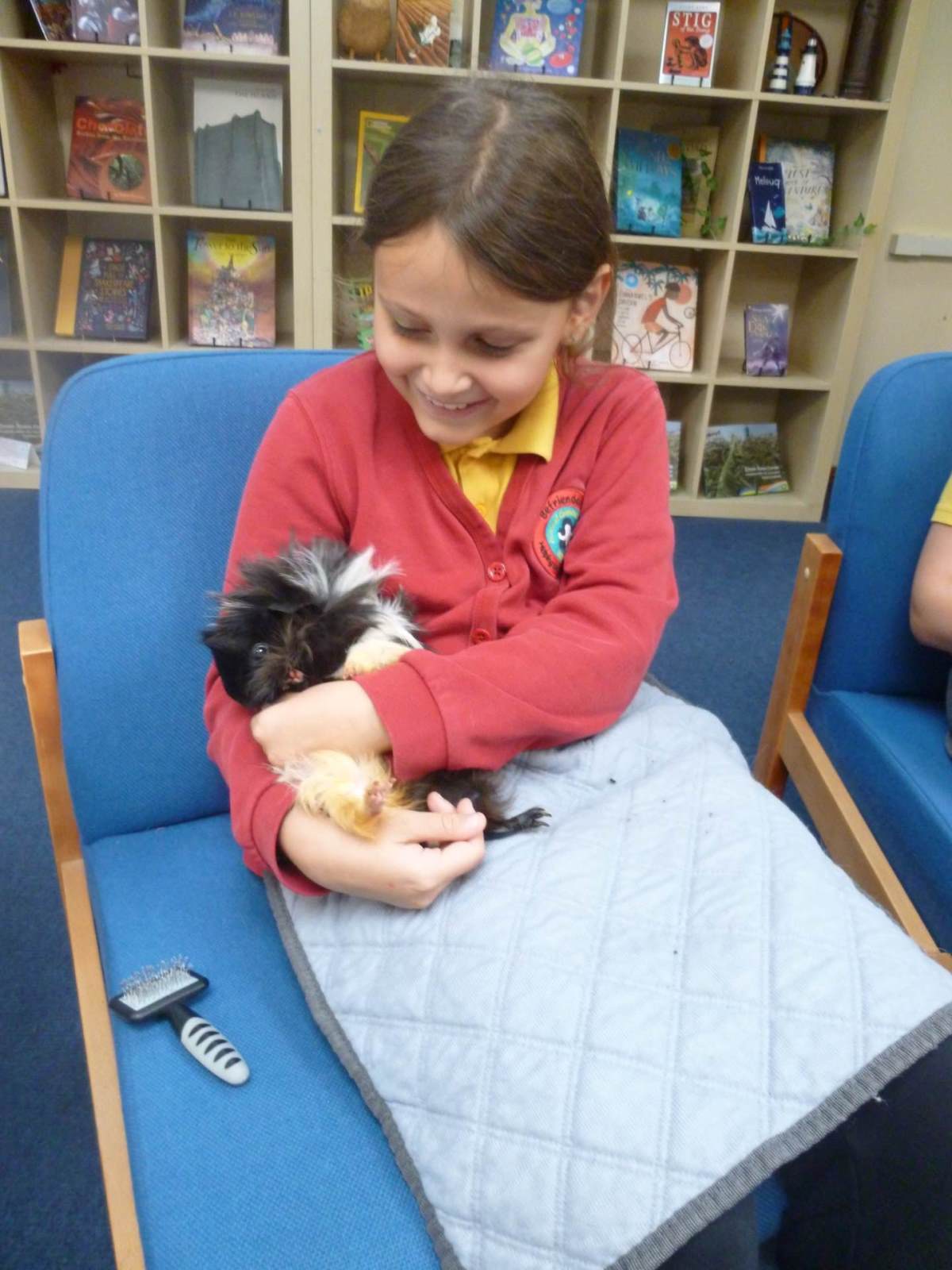 Each week we have the famous ‘Bambi and Flower’ visit Ashmead. Bambi and Flower are Ms Fernandez’ guinea pigs, and they join us for cuddles and chats on a Tuesday and Thursday. All children have the opportunity to come and see the guinea pigs, however, we also run sessions where children are able to handle the animals and spend time alongside a peer with a familiar adult.
Each week we have the famous ‘Bambi and Flower’ visit Ashmead. Bambi and Flower are Ms Fernandez’ guinea pigs, and they join us for cuddles and chats on a Tuesday and Thursday. All children have the opportunity to come and see the guinea pigs, however, we also run sessions where children are able to handle the animals and spend time alongside a peer with a familiar adult.
Children attend these sessions for many reasons and due to provision being aimed at two children at a time, it allows for a more personalised approach. Sometimes children just need a space to talk, or it might be used to support the development of communication skills. We have also had children attend these sessions who have low attendance or have recently suffered a bereavement.
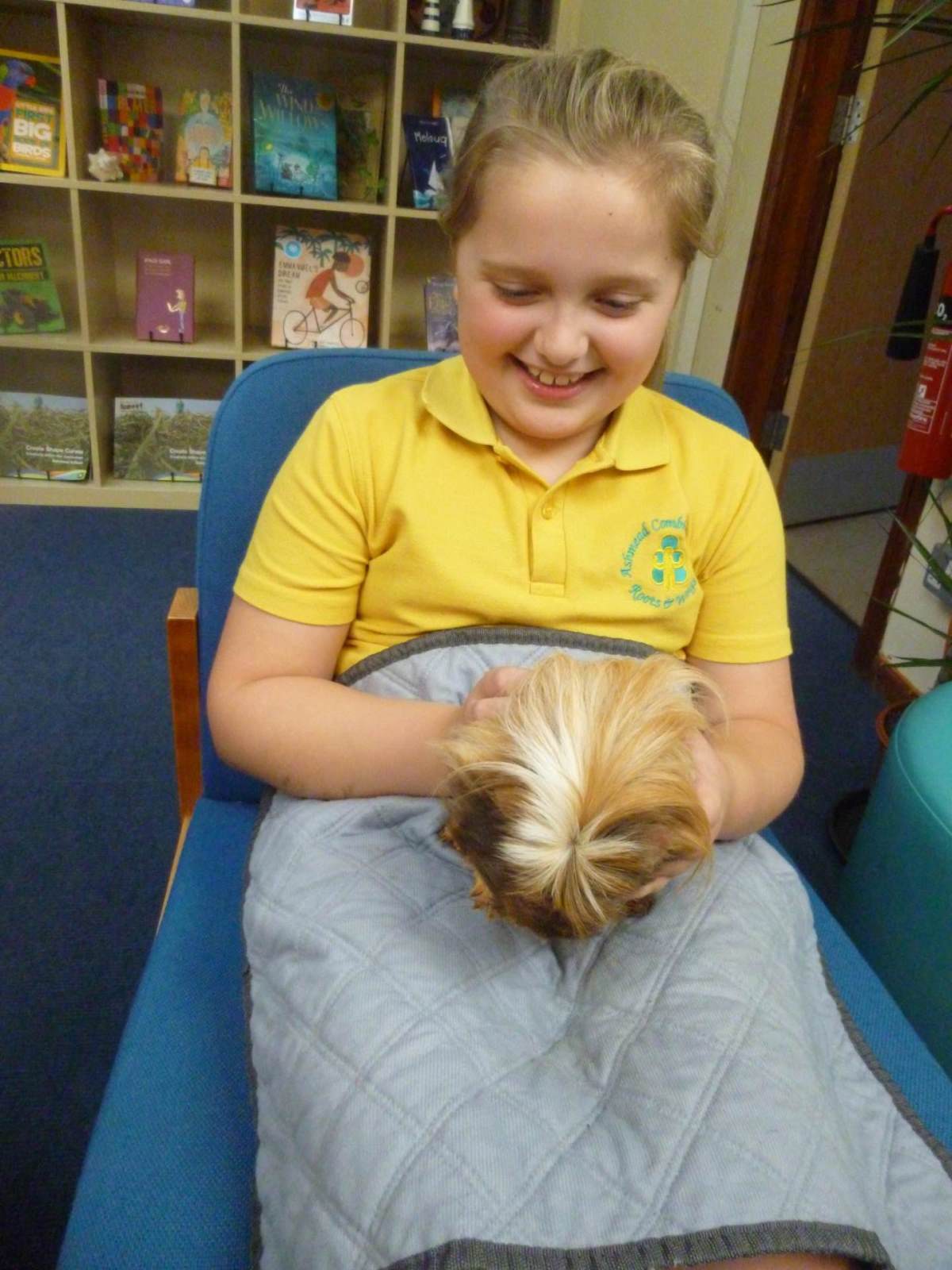
If you feel that your child would benefit from attending Furry Friends, please contact safeguarding@ashmeadschool.org.uk and Miss Lubbock will contact you to discuss this further.
Wellbeing Sessions
We are able to offer 1:1 Wellbeing Sessions to children who need a more personalised pastoral provision. A member of the Pastoral Team will meet your child weekly to work on individual focus areas. Some sessions include activities such as playing games and mindfulness, or sometimes these are used as simply a confidential space tp talk.
We are also able to offer Sandstory Wellbeing sessions, where children use sand and play to create stories to help express their thoughts and feelings. Every Wellbeing Session incorporates the Zones of Regulation; this tool is used across the school to support children in expressing and regulating their emotions. You can find more information about the Zones on our Zones of Regulation page.
If you feel your child would benefit from 1:1 Wellbeing Sessions, please contact safeguarding@ashmeadschool.org.uk and Miss Lubbock will contact you to discuss this further.
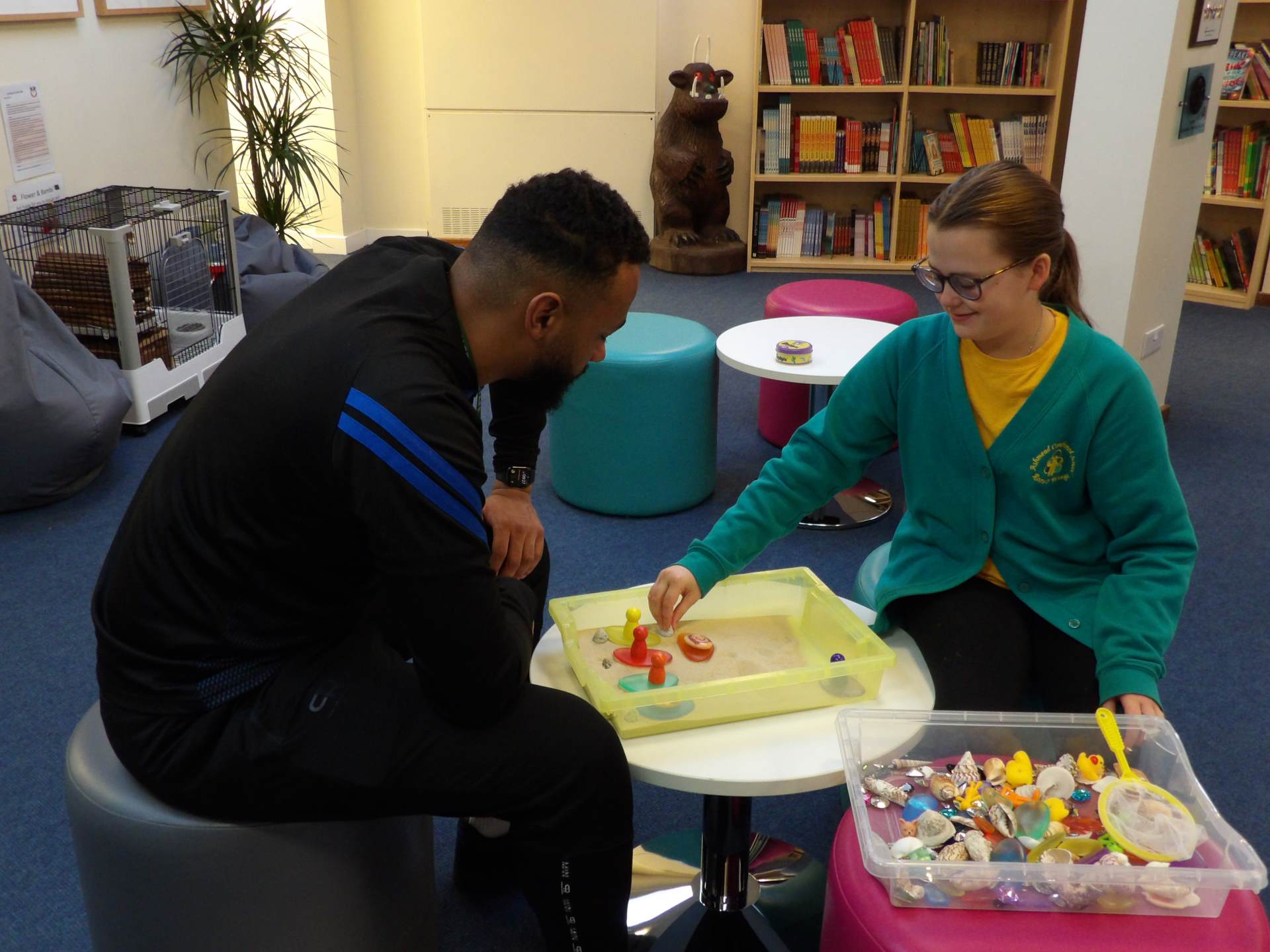
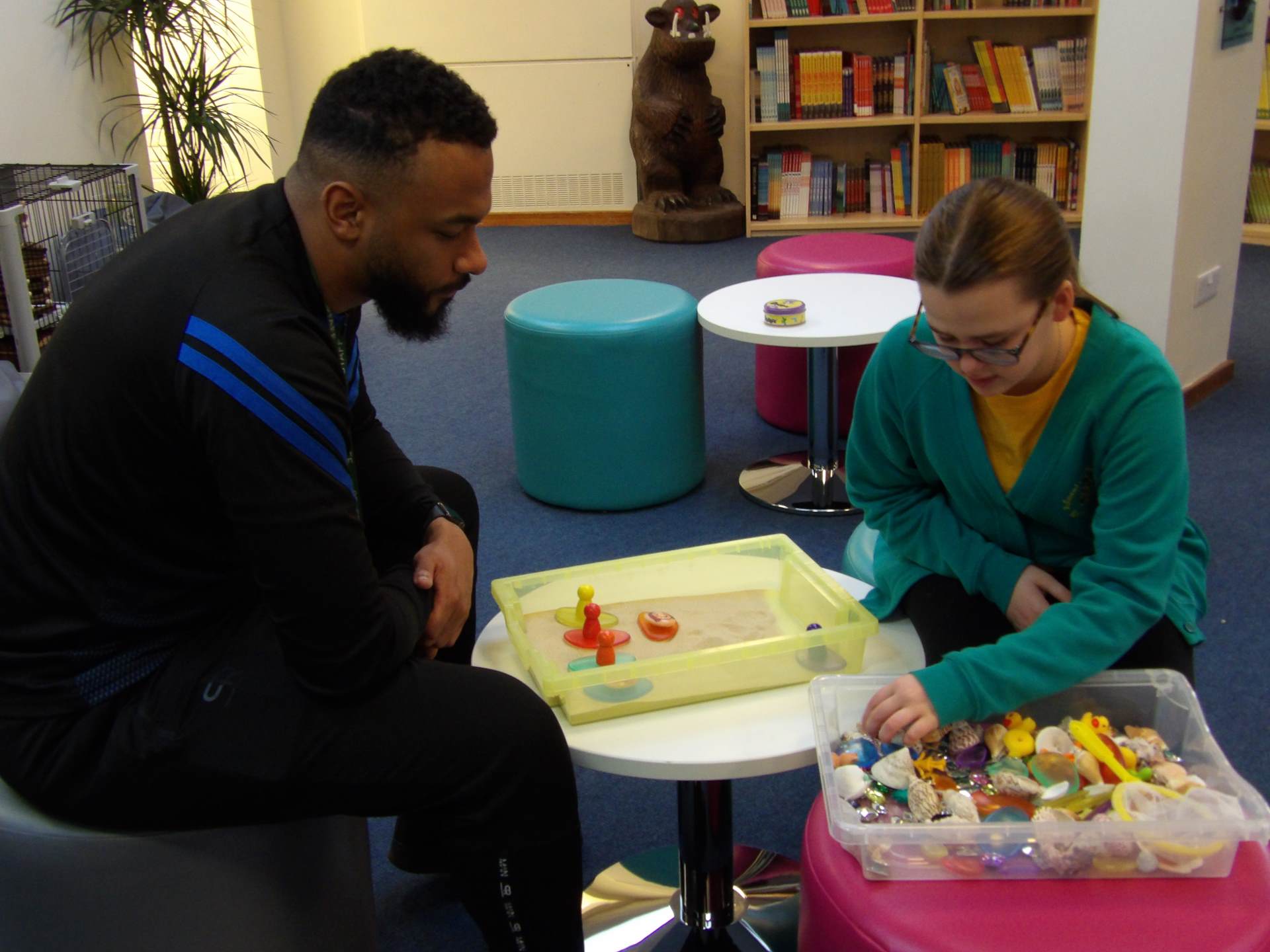
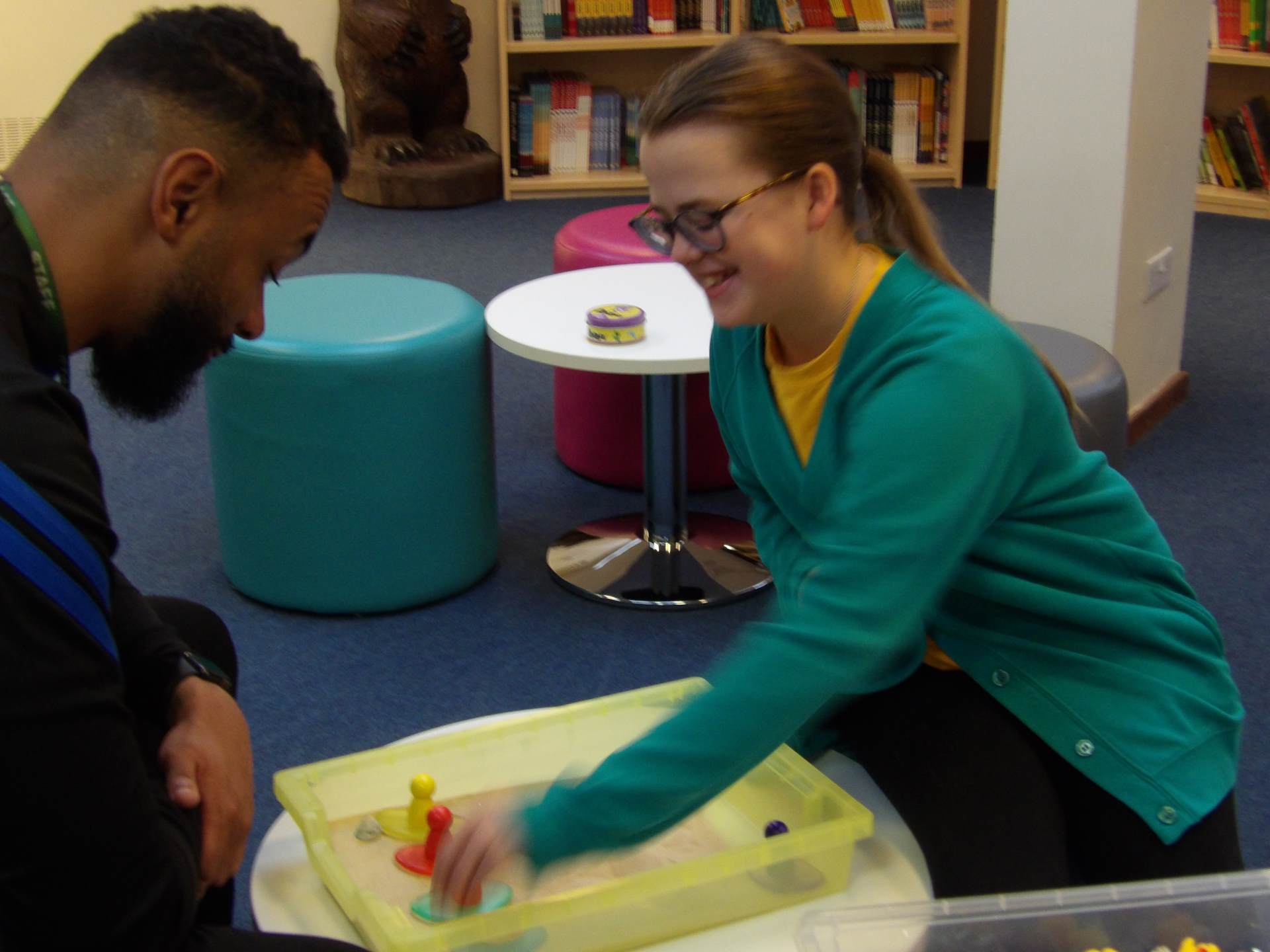
Helping Hands
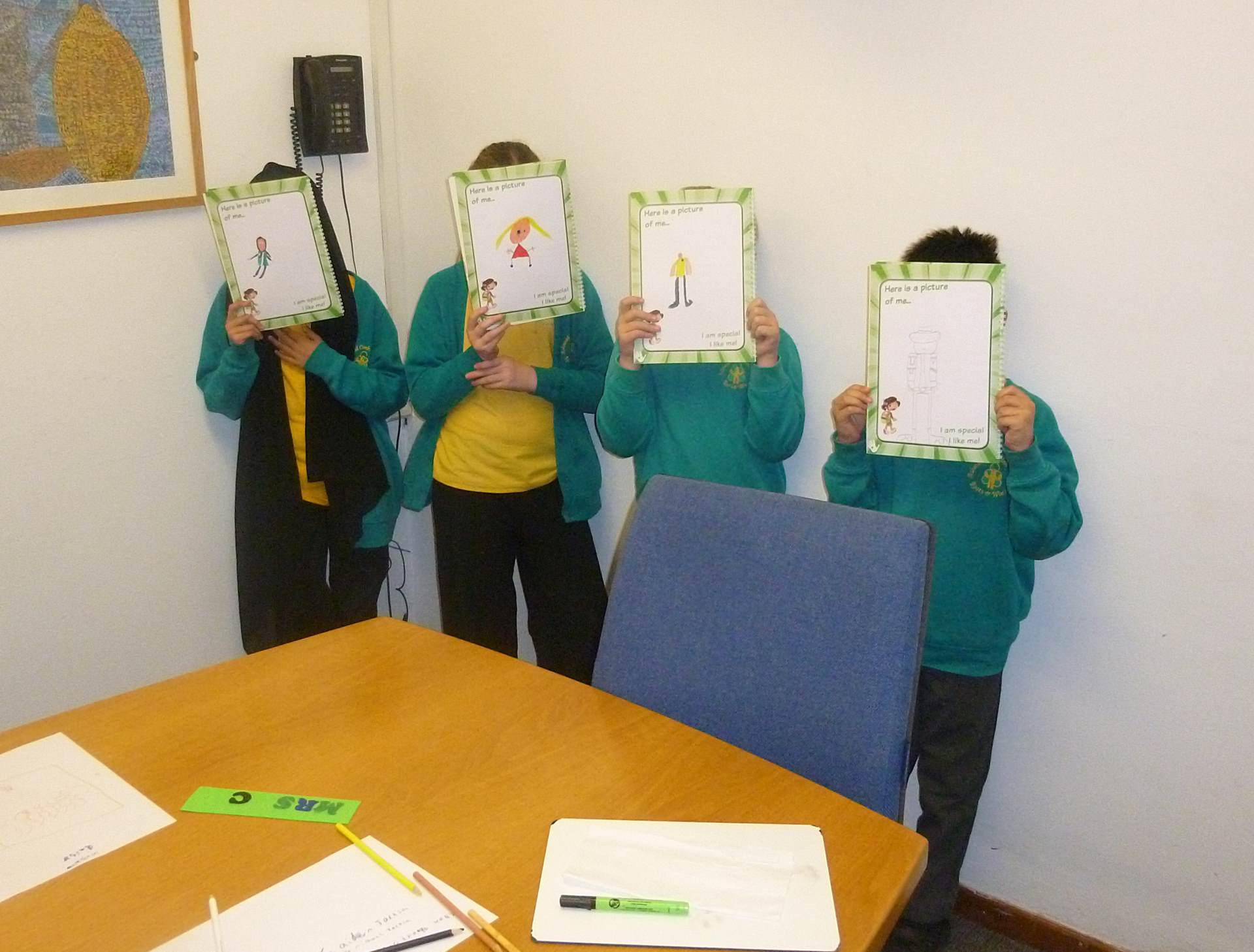 Helping Hands is a programme for children and young people which is run by Women’s Aid. A small group of children and a member of Ashmead staff attend each session. Throughout the 6 week programme, children look at different scenarios, thinking about how they would feel and react. Helping Hands helps children to feel confident in building safe and positive relationships, and also gives them the tools to be able to identify unsafe behaviours. The themes that run throughout the programme are:
Helping Hands is a programme for children and young people which is run by Women’s Aid. A small group of children and a member of Ashmead staff attend each session. Throughout the 6 week programme, children look at different scenarios, thinking about how they would feel and react. Helping Hands helps children to feel confident in building safe and positive relationships, and also gives them the tools to be able to identify unsafe behaviours. The themes that run throughout the programme are:
- We all have the right to feel safe all the time
- There is nothing so small or so awful we can’t talk about it with someone
- Others have the right to feel safe with us
Children who would benefit from attending Helping Hands will be identified by staff within the school.
Play Therapy
What is Play Therapy?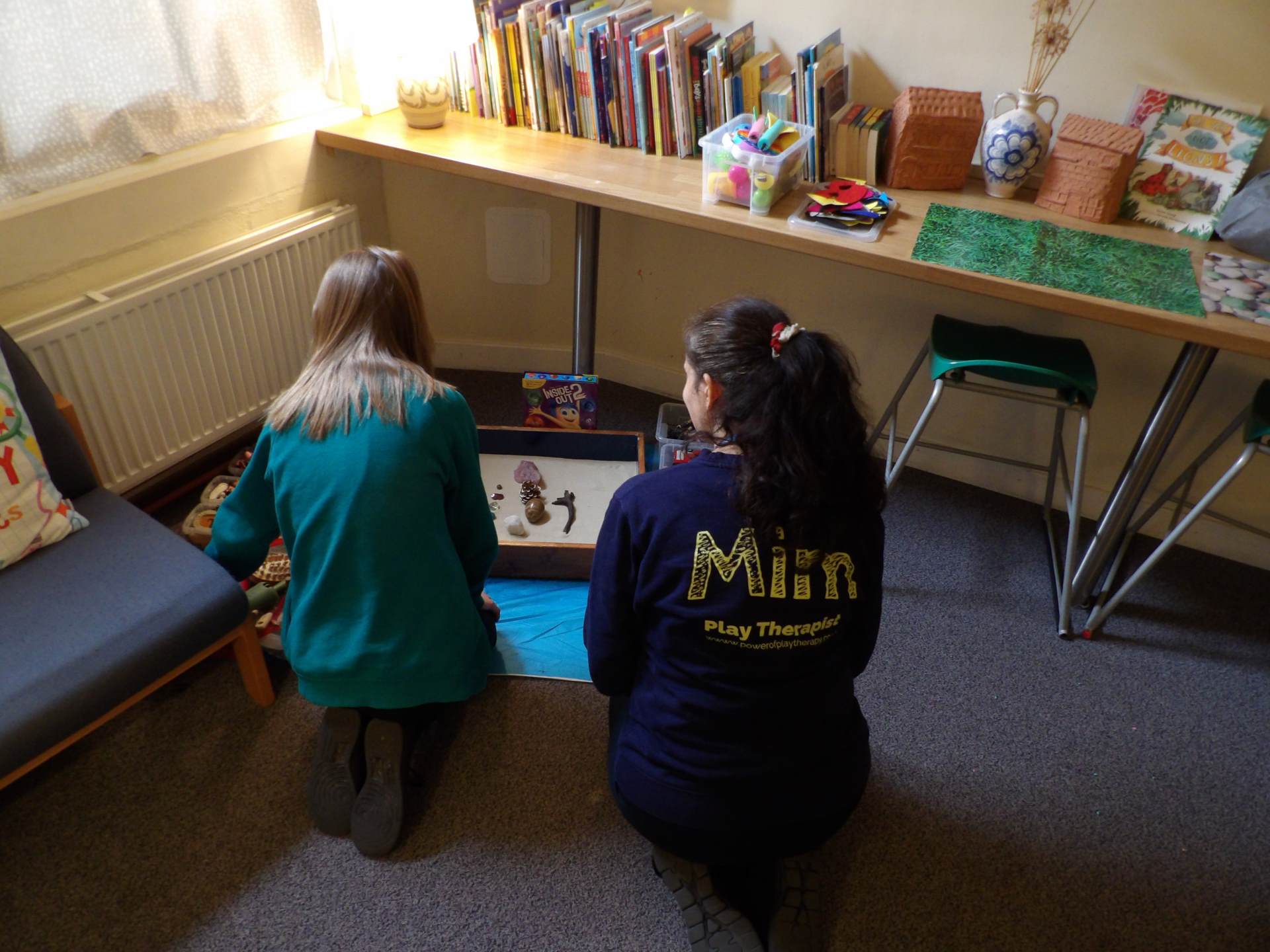
Play Therapy is the best form of therapy for children and young people. Through Play, a child can express their difficulties using a language that they are familiar with. Play is the child’s natural way of expressing themselves and helps them grow into healthy adults. Play gives children the opportunity to express their feelings and emotions. Mim Janetta runs Play Therapy sessions weekly. Mim is the founder of POP (Power of Play) Therapy - and we are very lucky to have her support here at Ashmead. For more information about Mim and POP Therapy, visit her website here: https://powerofplaytherapy.co.uk/.
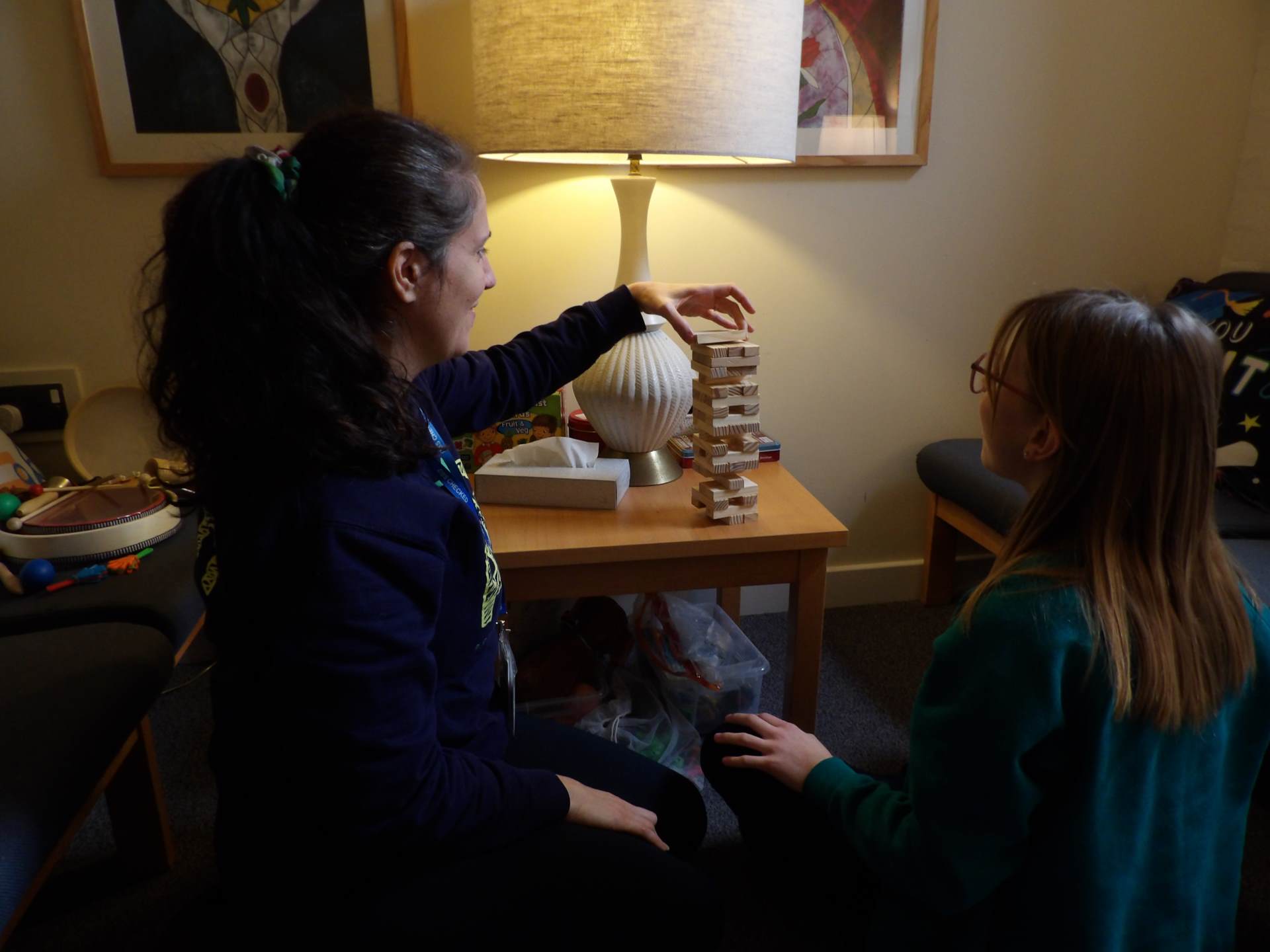 Why Play Therapy?
Why Play Therapy?
Play Therapy has many benefits to strengthen healthy brain development. Neuroscience has shown that play is essential in the successful development of the brain, especially with problem solving and how we interact with others and the world. Play also releases important chemicals in the brain which gives the child a sense of calm and happiness. Both staff and parents have reported that their child is calmer, can stay focused for longer and is able to manage their ‘big feelings’ in a more appropriate manner after Play Therapy.
How does Play Therapy work at Ashmead?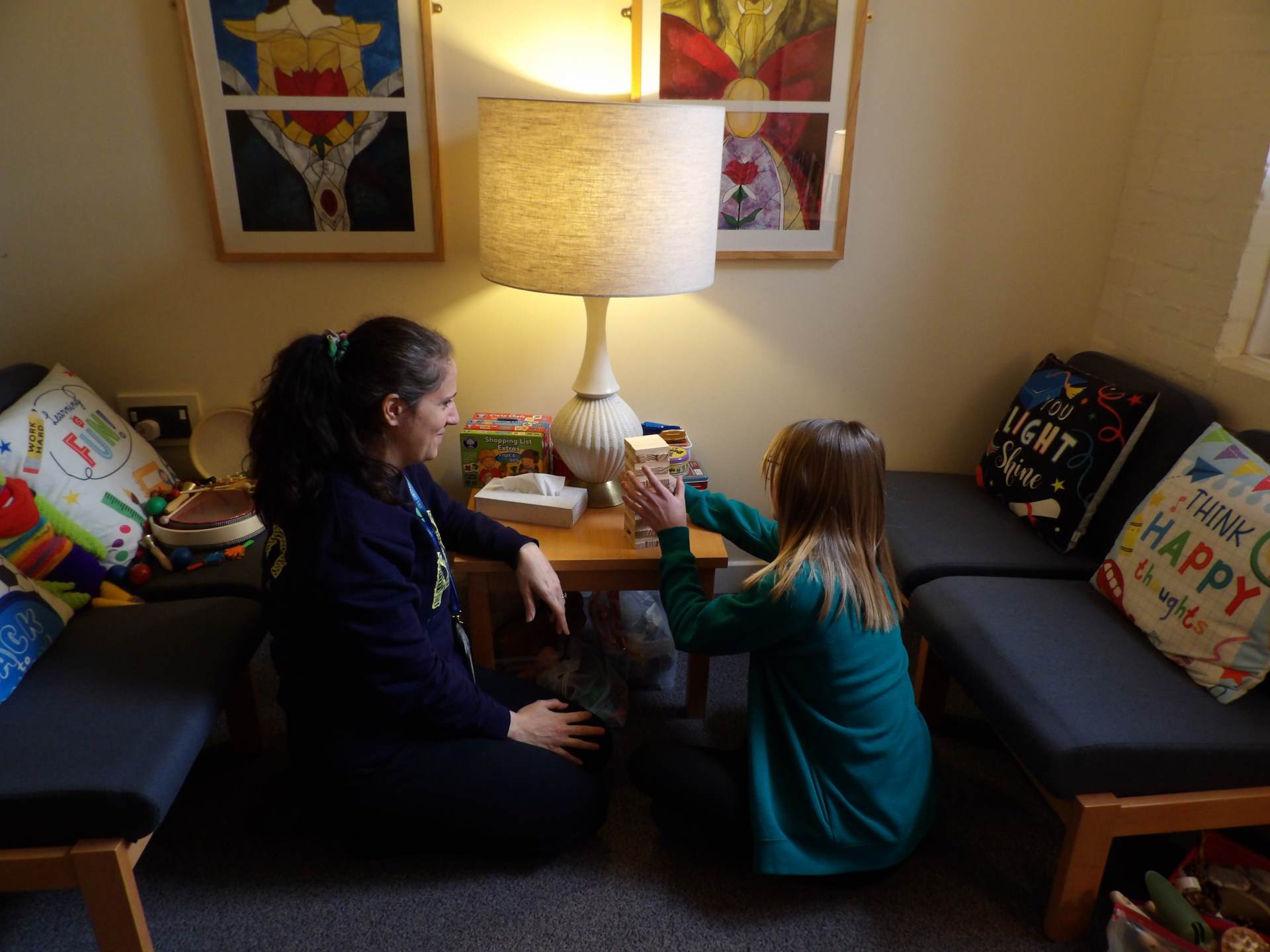
Each session takes place within the school day and in a familiar environment. Sessions last about 40 minutes. In that time the child will engage in creative activities of their choice, such as clay, sand, paint, Lego, stories, music, movement and puppets. The average number of Play Therapy sessions provided for a child is 16, and a minimum of 12 sessions is offered. During the assessment period it is easier to estimate the length of expected support needed. Usually, the longer a child has been experiencing difficulties, the longer your child will need support. A review will be planned in after every 8-9 sessions with parents (and schools if appropriate) to decide what is best. Rather than referring to sessions as Play Therapy, for younger children we use the term ‘Special Time’. Play Therapy is harder to explain, but the sessions are their Special Time to play, which will help them to cope with the difficulties they are facing.
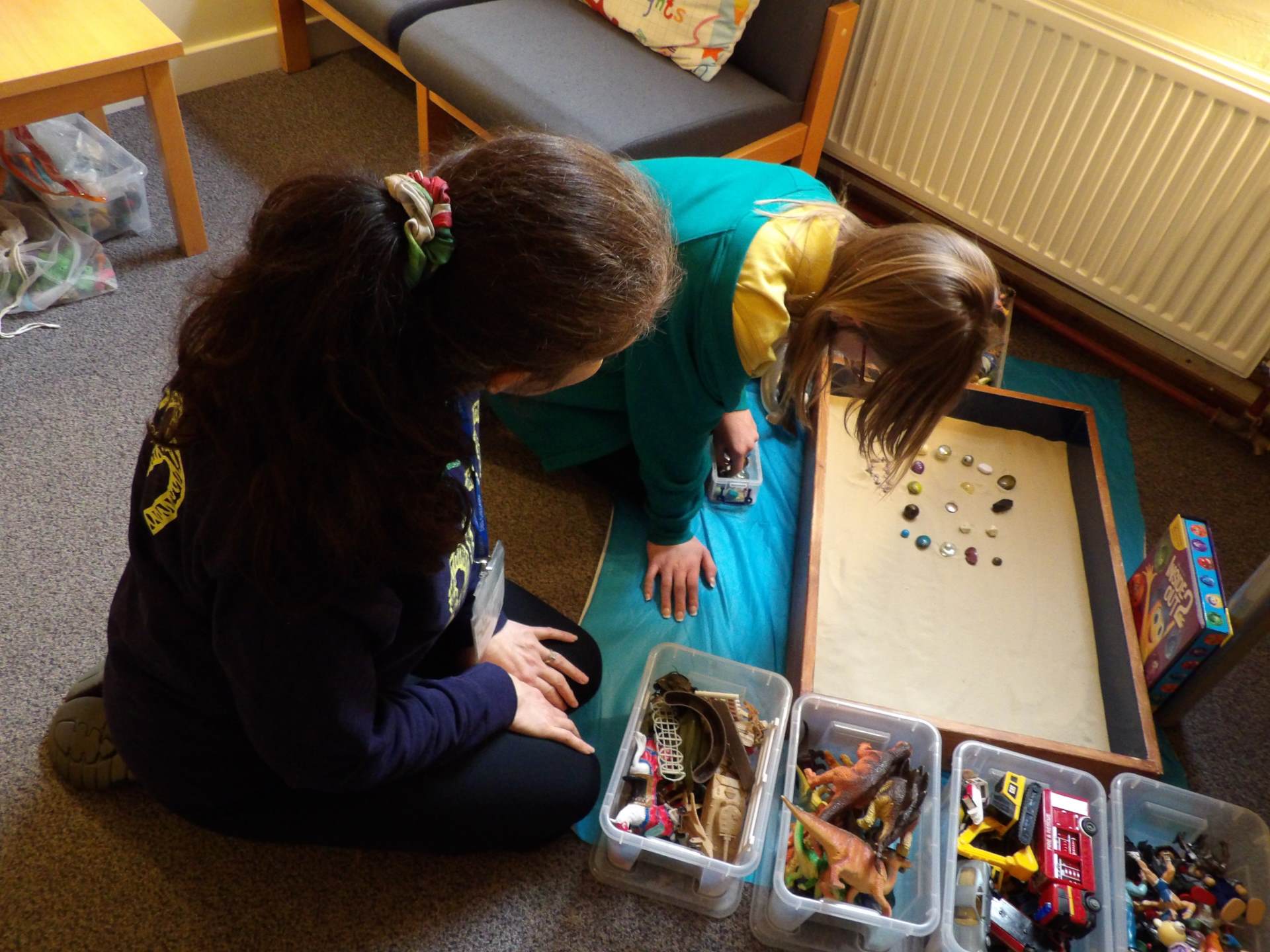 For some of our more specialist support, such as Play Therapy, we use Strengths and Difficulties Questionnaires to ensure that children who really need this support are accessing this as soon as possible. There are limited spaces for therapy sessions, but we are able to work through the other pastoral options to ensure your child is still accessing support whilst they wait for a therapeutic intervention.
For some of our more specialist support, such as Play Therapy, we use Strengths and Difficulties Questionnaires to ensure that children who really need this support are accessing this as soon as possible. There are limited spaces for therapy sessions, but we are able to work through the other pastoral options to ensure your child is still accessing support whilst they wait for a therapeutic intervention.
Children who would benefit from accessing Play Therapy will be identified by staff within the school.






